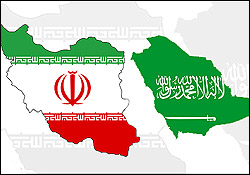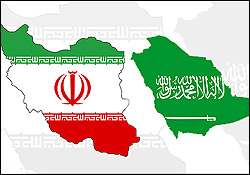Saudi-Iranian Agreement in Lebanon Under US Patronage

Away from the complications currently complicating the process of forming an all-inclusive political government in Lebanon, observers and concerned milieus in Washington seem fully convinced that matters will be put on track because there is a major decision as such outweighing all the parties on the Lebanese scene.
Despite the ability of the political factions in Lebanon to delay or hinder events, nobody has the power to stand in the face of a huge decision. This is what significantly looks as if former Prime Minister Saad Hariri has overturned his positions as well as like a step back by Hizbullah.
In Washington, some look at the picture from its wide regional angle, and never from the narrow Lebanese perspective.
The propaganda-style mottos parties in Lebanon have used might have actually trussed them. Some of them have gone far in their media campaigns and political outspoken stances, thus enhancing their presence on the ground, making it hard to go back to the middle point, in the center.

The coup the US administration has staged since last September upon solid bases and a big plan that will develop in time, actually relies on USA's strategic interests.
This project is currently taking a clear tilt on the basis of fighting terrorism. This is why many and key developments took place in the Middle East, yet which some sides in Lebanon are disregarding.
In Turkey today, Erdogan's image as the Islamist political model that had glowed for years is gradually fading, even though it is the country which constitutes the cornerstone of any US strategy in the Middle East. It was from Turkey that the schemes to lead the Muslim Brotherhood to power in the Arab world had kicked off, in what was later known as the "Arab Spring," according to the notion that had prevailed at the time about the production of Islamist governments similarly to the political Islam ruling Turkey through Erdogan's government.
It is needless to point out the startling apparition of Fethullah Gulen in the face of Erdogan. The man has spent about two years in the US as being persecuted by Erdogan and now maintains excellent ties with a number of senior US officials.
Moreover, campaigns against Erdogan for allowing arms smuggling to the
oppositionist Islamist factions in Syria are part of the internal conflict in Turkey. And of course, Erdogan's setback does not annoy KSA at all. It actually satisfies it.
In Iraq, Nouri al-Maliki brought in support for his government to fight extremist groups after his remarkable visit to the US. It is true that these groups considerably contributed to the sectarian war that has ravaged Iraq, hence casting many doubts on their sponsors and the dimension of the danger they represent. But today, with the "Sahwa" forces having joined Maliki's government in its combat of terrorism-noting that forces include ranking tribes close to the Americans-the picture has changed.
In Jordan, the role that was attributed to the Kingdom in the Syrian war has dwindled.
In Egypt, communication is back on track between Cairo and Damascus, albeit inexplicitly, pending stability to eventually prevail so that the bilateral ties between the two capitals are soundly rebuilt.
In Syria, there are tremendous efforts to talk oppositionist factions with no connections with Islamist organizations into attending Geneva II, where the Syrian regime will be present as a key party, which entails that the factions have covertly reneged on their top demand that Assad steps down.
However, information circulated behind closed doors say that Washington, which has taken Moscow as partner in some Mideastern dossiers, tried to convince the Russians to replace Assad with any other name from the regime, while keeping the security and military configuration as it is. This has become a conviction among the Americans, whereas the US has even proposed that the substitute be an Alawite figure.
Also in Washington, it is whispered that Moscow, which found in the US suggestion a change in the form that would maintain the continuity of the current regime, discussed this with Tehran, which flatly rejected such scenario and clang to keeping things in Syria the way they are. Russia had then to go back to the start: finding a solution in presence of Assad.
Accordingly, givens in Lebanon changed suddenly, whereas it is now about restoring stability through contributing to the war on extremism. It is not anymore about Iran and KSA locking horns; today, everybody wants to join efforts to entrench the pillars of stability, security wise, and then normally, on the political level.
Extremist organizations are in fact expanding through sectarian confrontations, which led to the emergence of huge numbers of Lebanese suicide bombers; the West has then become very concerned.
All of the aforementioned indicates a prime US decision touching on [assigning] Iran and Saudi Arabia, each from their angle, to rearrange the Lebanese domestic affairs through the new regional scene. As a result, the losing sides tried to inhibit the deal by bombing Arsal, igniting Tripoli fronts, and carrying out terrorist operations.
The deal was sought to bring forth a new government, thus raising questions about the destiny of the presidential elections. And this is another whole story!
Showing great appetite for the formation of a new government, President Michel Suleiman actually hopes his term would be extended in the event of a consensual Cabinet. The President is bracing for reviving the mandate-extension-rather-than-vacuum equation.
According to accurate, trusted sources, somebody has, again, expounded to Hizbullah the "advantages" of the extension: "President Suleiman has never harmed the Resistance, its project, or its weapons, and he is more guaranteed than anybody else, based on experiences."
Hizbullah did not give its opinion on such "temptations," but kept silent, knowing well that Saad Hariri is seeking to extend Suleiman's mandate. But the picture abroad is no more excited with this option, especially in France. Even more, Paris has already ventured into searching for likely candidates.
For instance, Paris has invited Lebanon's Central Bank Governor, Riad Salameh, for a visit. It had earlier invited Army Chief, General Jean Qahwaji, for a visit with military purposes, which yet enfolded significant aspects. Meanwhile, some top embassies are making intensified enquiries into the profile of former minister Jean Obeid. Most notably, Moscow will take part, for the first time ever, in the [outlining of] the profile of the new President.
Source: al-Joumhouriya newspaper- Johnny Mnayar*
*Translated by Al-Ahed news
Comments




